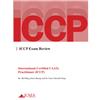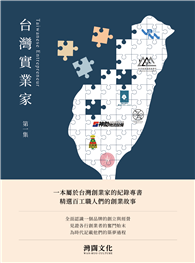ICCP Exam Review provides complete guidance toward all content areas, tasks, and knowledge areas of the exam and is illustrated with real-world examples. All ICCP terminology has been revised to reflect the most recent interpretations, including 252 knowledge inventory questions and 8 case studies. Each chapter summary highlights the most important topics on which you'll be tested, and review questions help you gauge your understanding of the material. You also get access to the ICAEA eLearning Platform to watch the training videos, practice the case studies, and practice the exams.
For those who audit, control, monitor, and assess enterprise digital data, the ICCP certification signals knowledge, skills, experience, and credibility that delivers value to a business. This study guide gives you the advantage of detailed explanations from a real-world perspective, so you can go into the exam fully prepared. ICCP exam includes both knowledge test and hand-on CAATs (Computer-Assisted Audit Techniques) skill test. The ICCP certification has been a globally accepted standard of achievement among computer auditing in more than 20 countries. If you're looking to acquire one of the top computer auditing credentials, ICCP Eaxm Review is the comprehensive study guide you need.
ICCP Exam Review (ICCP 國際電腦稽核軟體應用師考試總複習) 提供參加考試者完整的學習指引,包含各領域所需專業知識並提供實際案例演練資料提高學習效果。所有 ICCP 國際電腦稽核軟體師應用專業術語都經過修訂,來反應最新的趨勢,內容包含超過250題知識觀念題與 8個實務案例上機題。每章摘要說明讓您了解測試重點主題,透過模擬考題演練協助您衡量對考試內容的精鍊度。您還可以透過ICAEA國際電腦稽核教育協會(www.icaea.net)的數位學習平台,觀看線上課程影片、練習案例研究與熟悉考試方式。
對於稽核、控制、監督與進行企業資料分析的人來說,通過ICCP 國際電腦稽核軟體應用師認證考試,證明可以為企業帶來具有價值的知識、技能、經驗和信譽。本學習指南從實務的角度為您提供詳細釋例,協助您充分準備後,順利參加考試。 ICCP 國際電腦稽核軟體應用師除了電腦稽核與法遵科技應用之知識觀念題外,另有CAATs(電腦輔助稽核軟體)實務案例上機技能測驗,共兩部分考試。 ICCP 國際電腦稽核軟體應用師認證已成為全球 20 多個國家電腦稽核的重要標準,若您有志取得此專業證照,幫您的職涯加分加薪,ICCP Eaxm Review 是您需要的綜合學習指南。

 共
共 










